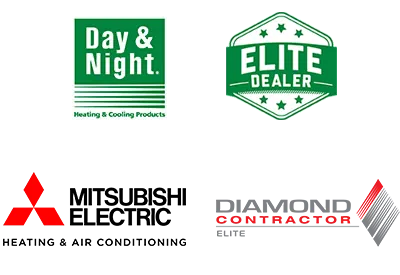As a homeowner, there's lots to do to maintain your property. Everything from mowing the lawn, to clearing your drains and cleaning the leaves out of the gutter - there's so much to think about. The quality of your water is often the last thing on your mind. However, it's something every homeowner should start thinking about. There are many things that can impact the water quality in your home.
Did you know that overusing water can actually put strain on the water system, ultimately impacting your water quality? This is especially true if you share the water supply with the rest of your community. According to the Environmental Protection Agency, the average American uses roughly 82 gallons of water every day at home for cooking, drinking, washing cloths, watering the lawn or garden, flushing toilets, and taking showers and baths. When everyone is collectively using the same water, it puts a strain on the local water supply.
Pollution could be the cause of your poor water quality. This is why it's never recommended you dump oil, grease, or chemicals and detergents down the drain, as this can pollute your local sources of water. Not only that, but other things like an overflowing septic tank can cause poor - and even dangerous - water quality. Water that is polluted with chemicals and disease-causing microbes are not good for consumption or for your health. Other causes of pollution include:
Have you had your plumbing inspected recently? If your home is still equipped with an old plumbing system, then you are at greater risk of experiencing bacteria growth and poor water quality as a result. When the lead from old pipes ends up in your drinking water, it can pose a serious threat to your health - and to the quality of your water supply. If you notice a metallic taste in your water or discoloration, it could be that your pipes are made of cast iron, galvanized iron, or steel and the pipes have begun to corrode after years of use. Take this as a sign to stop drinking the water and get your plumbing checked out.
Your environment and surroundings can also have a huge impact on the water quality in your home - such as sediment buildup. Sediment comes from soil erosion or from the decomposition of animals and plants. Once it enters your drinking water, it significantly lowers the quality of it. Not only can it cause poor odor and taste problems, but it can also negatively impact your health.
You may have poor water quality if you notice:
There are things you can do to help prevent poor water quality, such as:
However, sometimes it's easy to forget to do these things and one other major solution to consider is to invest in a water conditioning system that does the work for you.
If you have concerns about your water quality, such as the contaminants in your water, or you just want your water to taste better, then consider water conditioning. According to the Environmental Protection Agency (EPA), 40 million Americans are being exposed to lead-contaminated drinking water. Getting rid of the bacteria and toxins in your water improves the taste, smell, and water supply, while also reducing expenses and the carbon footprint related to bottled water.
For over 35 years, Peter Levi has been providing fast, professional water conditioning services you can count on. The experts at Peter Levi are here to help with all your home zoning needs. Contact us today at 800-868-6885 or online here.

GM, Peter Levi Plumbing, Heating, Cooling and Drains
With over twenty years of expertise in HVAC, plumbing, and drain services, I specialize in delivering high-quality solutions for residential needs. From high-end heating and air conditioning systems to comprehensive plumbing and underground construction projects, I am committed to providing exceptional service and reliability for every household. Whether it's an emergency repair or a planned home upgrade, my focus is always on delivering the best customer experience.
Do you feel that some areas of your home are comfortable, while others are too hot or too cold in some places? Usually this is due to a lack of home zoning! In a house that doesn't have zoning, one thermostat is responsible for heating and cooling your entire house. This makes achieving even, comfortable temperatures difficult - especially if your home is several stories and has lots of windows.
With a home zoning system, you can enjoy comfortable temperatures throughout your entire house. Here are the top 3 benefits of using a home zoning system.
When you have home zoning, you can section off parts of your house into a desired number of "zones" which you can independently control. Choose which areas, or zones, you want heated or cooled and at what temperature you want them at. This part is great for families that can't agree on an ideal temperature! While 75 degrees may feel ideal for some, there are people who prefer a cooler environment. With the flexibility of home zoning, you can change the bedroom to one temperature and the family room to another.
You're lowering your energy usage by only heating or cooling occupied zones, which means you're spending less money on heating and cooling costs. Not only that, but you can turn the air up or down as you wish to make each room, or "zone" comfortable. You will also begin to see an increase in your home's overall energy efficiency. According to the U.S. Department of Energy, the average savings you can see in your energy bills from having a home zoning system is around 30%. Considering heating and cooling makes up more than 40% of a home's total utility costs, a zoned system can really save a lot of money in the long run!
Because you're only heating and cooling certain zones in your house, you're not wasting energy heating and cooling your entire home when you have a zoned system. In a home without zoning, you may find that you're wasting a lot of energy heating and cooling rooms that you never use. However, with a zoned system, you won't have to worry about heating and cooling rooms that you're not using. After all, why waste energy heating or cooling your rarely used guest bedroom all year long? A zoned system lowers your energy consumption, saves you money, and also lowers your family's overall carbon footprint.
For over 35 years, Peter Levi has been providing fast, professional home zoning services you can count on. The experts at Peter Levi are here to help with all your home zoning needs. Contact us today at 800-868-6885 or online here.

GM, Peter Levi Plumbing, Heating, Cooling and Drains
With over twenty years of expertise in HVAC, plumbing, and drain services, I specialize in delivering high-quality solutions for residential needs. From high-end heating and air conditioning systems to comprehensive plumbing and underground construction projects, I am committed to providing exceptional service and reliability for every household. Whether it's an emergency repair or a planned home upgrade, my focus is always on delivering the best customer experience.
NOVATO
24 Digital Dr STE 1
Novato, CA 94949
VACAVILLE
1021 Mason St, STE 11
Vacaville, CA 95688
Mon - Fri. 7am - 7:30pm
Sat. 7:30am - 4pm
Sun. Closed
